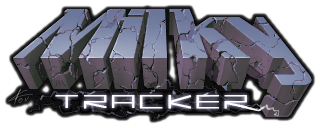MilkyTracker: The quest for the perfect music software
The last album I made was in 2013 on a MacBook using Logic Pro and Massive, a setup that cost a couple thousand dollars. Since I no longer have that machine and the software was proprietary, I no longer have access to all of that work. This has sparked a great interest in searching for a replacement digital audio suite, one that would provide a comparable workflow but also offer longevity, the ability to archive my work in a format that can be shared across platforms and improved upon.
An artist should demand nothing less! What if a painter had to stop working on everything because they didn't want to use canvas from a certain company, and then none of their brushes or paints would work? That's what is actually happening in today's creative landscape, but with software.
Whatever program I use must, above all else, use a standard file format for music encoding, which is usually MIDI but there are others. That way none of my work is dependent on any specific piece of hardware or software.
Oh and there's this other thing... my desktop computer is a Raspberry Pi, and the task of finding a piece of software that would fulfill my requirements would turn out to take many months of trying every program I could find, which is why I wanted to put together a guide to lightweight, open source, cross-platform music production software.
Making Music with Raspberry Pi and MilkyTracker
20 years of doing electronic music... yet I had never heard of a “tracker”. “Tracking” was what we did in the studio with live instruments, first with 4 or 8-track analog tape, then the modern software interface that follows the tradition of the mixing console with faders affecting content represented horizontally in the style of a reel of tape running across a playhead. That was “tracking” in the recording sense. But now I'm actually composing on the computer using a Music_tracker, a special program made for making music for video games, which is not surprisingly part of a worldwide "tracking" subculture with a rich history going back to the dawn of digital music.
I had often used lots of 8-bit sounds in my music, because I always loved good video game music. But I was coming from a background of producing for the dance floor. My program was either part of a software suite in which notes are entered into a piano-roll type editor to be processed by virtual racks of synths, sequencers and effects, or else I was in full-on classical band-geek mode, using a notation program where you engrave sheet music by pointing and clicking notes onto the staff.
Here I was in 2018 trying to find a way to produce an album on a Raspberry Pi 3, and none of these options seemed to work. It will run Audacity just fine, I can edit audio all day long, but I was simply looking for a reliable and intuitive way of manipulating song data, as in durations and pitches of notes. I was even prepared to use Lilypond again, where you simply code your music in a text file, but I came up empty-handed trying to make a setup that would even work at all, much less in a sensitively demanding manner conducive to capturing inspiration through an efficient workflow.
Even trying to find a simple midi editor that would just let me put in piano notes and hear it back turned out to be surprisingly frustrating. I had kept stumbling upon a certain article that seemed to suggest that we are going about it the wrong way. For such low-powered hardware, we need to use samples as our sonic building blocks instead of synthesizers. You can use the exact same sounds, the only difference is the waveforms are produced and captured ahead of time instead of calculating everything on the fly.
An analogy to understand the cost of computational resources would be to imagine a mason laying bricks to build a house, then telling him that he has to start making his own bricks too, but in the same amount of time. That's me trying to produce music on my $35 computer.
So if the problem with my situation is that my CPU runs like it's from the early 90s... indeed, the answer is to produce music in a way they just so happened to do on computers in the early 90s quite effectively, in a form that turns out to be completely new to me.
Here's what I ended up with in just a couple hours:

Comments
Post a Comment